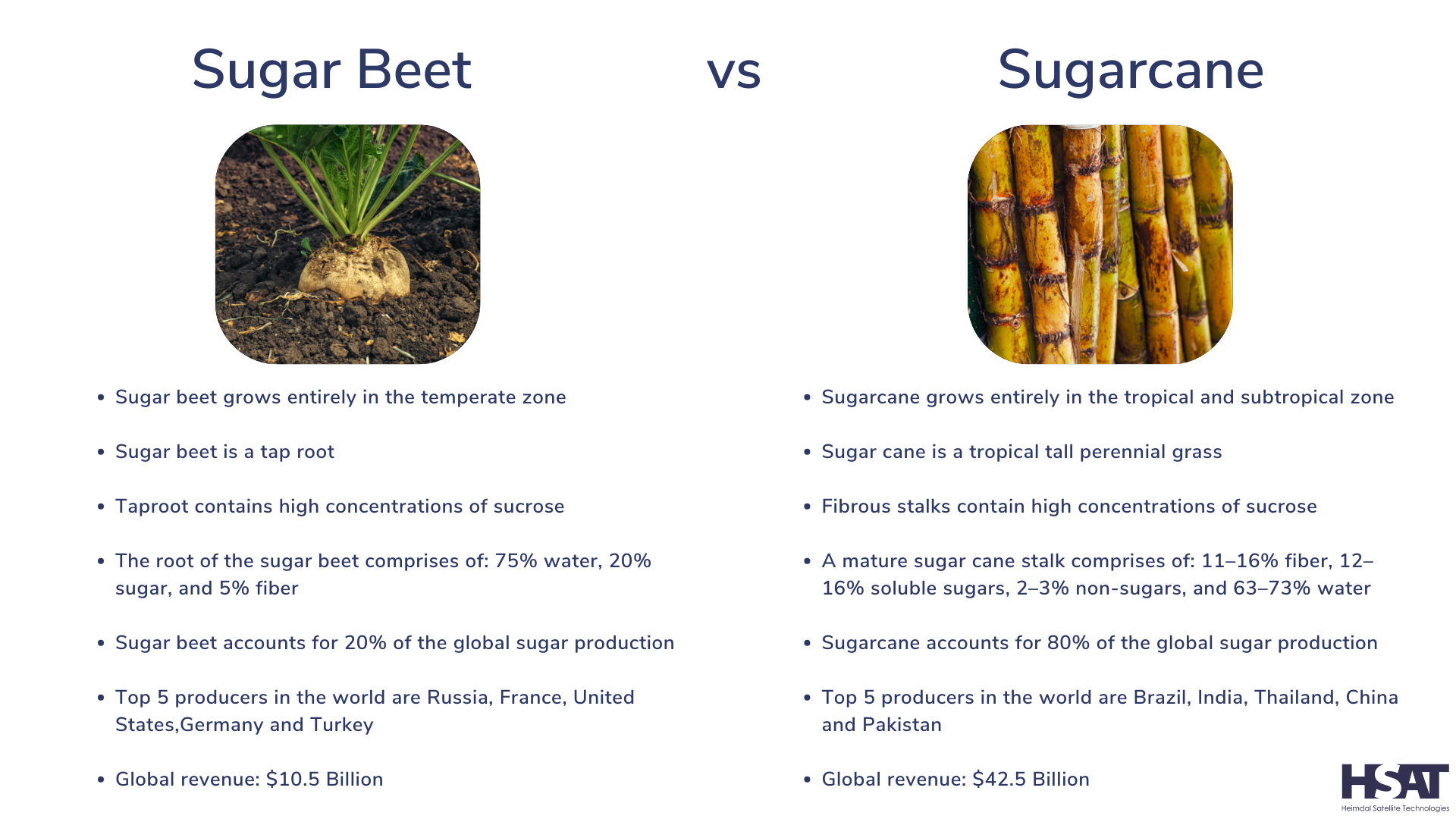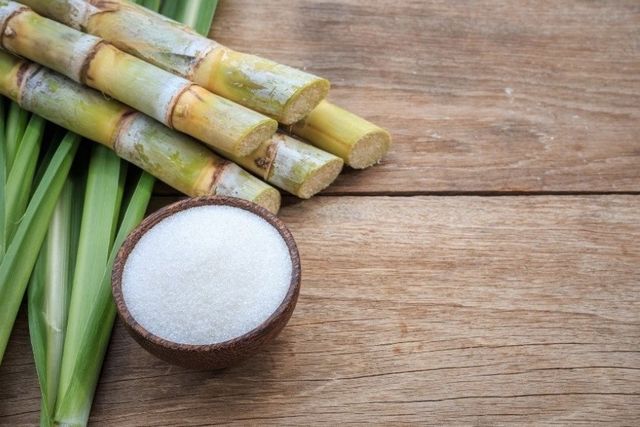Beet Sugar vs Cane: Which Option Provides a More Authentic Taste?
Beet Sugar vs Cane: Which Option Provides a More Authentic Taste?
Blog Article
The Terrific Argument: Beet Sugar Vs Cane and Their Influence On Health
The recurring discussion surrounding beet sugar and walking cane sugar raises crucial questions regarding their respective health and wellness influences and broader effects for consumer choices. This discussion welcomes us to take into consideration not simply the sweetness we select, yet the far-ranging impacts of those selections on our wellness and the planet.
Summary of Sugar Resources
Sugar, a commonly eaten sugar, largely stems from two main resources: sugar beets and sugar walking stick. Sugar walking cane flourishes in exotic and subtropical environments, with major producers consisting of Brazil, India, and China.
Conversely, sugar beetroots are mostly expanded in temperate regions, with considerable production in nations such as the USA, France, and Germany. The beetroots are gathered from the ground, sliced, and subjected to a procedure that converts the removed juice into granulated sugar. While both sugar sources eventually produce sucrose, their agricultural methods, refining techniques, and geographical circulations differ noticeably.
These differences can affect not only the ecological effect of sugar manufacturing but additionally the economic elements of sugar pricing and profession. Comprehending the beginnings of these sweeteners is crucial for customers and policymakers alike, as it lays the foundation for informed conversations concerning their health and wellness implications and sustainability.
Nutritional Comparison
When taking a look at the nutritional profiles of beetroot sugar and walking stick sugar, both sources share a similar composition as they mainly include sucrose. Sucrose is a disaccharide, composed of sugar and fructose, and is in charge of the sweet taste associated with both sugars. The refining processes for both beetroot and walking stick sugar yield products that are mostly pure sucrose, with minimal traces of vitamins, minerals, or various other nutrients.
In regards to calorie content, both beet and walking cane sugars offer approximately 4 calories per gram. Neither sort of sugar provides considerable dietary benefits past energy stipulation, as they lack necessary vitamins or minerals. However, the presence of trace elements, such as potassium, calcium, and magnesium, can differ a little in between both, largely because of the farming techniques and soil conditions in which they are grown.
Additionally, the glycemic index worths of beet sugar and walking cane sugar are equivalent, suggesting comparable results on blood sugar degrees. On the whole, from a dietary point ofview, beetroot and walking cane sugars are functionally equal, adding mostly to calorie consumption without supplying substantial wellness advantages over one another.
Wellness Ramifications
The health and wellness ramifications of consuming beet sugar and cane sugar warrant mindful factor to consider, particularly offered the climbing frequency of sugar-related health and wellness problems. Both sorts of sugar contribute similar calorie worths and can cause enhanced risks of weight problems, type 2 diabetes, and cardio diseases when eaten in extra. The body sugars both metabolizes into glucose, which can trigger spikes in blood sugar level levels, resulting in insulin resistance gradually.
While there is recurring dispute concerning the glycemic index of these sugars, research studies suggest that both can adversely impact metabolic wellness if eaten in large amounts. beet sugar vs cane. In addition, the potential visibility of contaminants in beetroot sugar, such as pesticides from standard farming techniques, increases more health and wellness issues. On the other hand, cane sugar, specifically when minimally processed, might provide a slightly extra beneficial profile due to its natural state
Moreover, the consumption of sugarcoated, no matter the resource, is connected to unfavorable health outcomes, consisting of oral problems and fatty liver condition. Consequently, small amounts is important, and individuals must be mindful of their overall sugar consumption from all sources, eventually focusing on entire foods over included sugars for optimum health results.
Environmental Effect
Recognizing the wellness implications of beet and walking cane sugar also brings about an exam of their ecological influence, which can considerably influence agricultural sustainability and eco-friendly equilibrium. Both sugar sources have distinct environmental impacts, shaped by their growing practices and geographical needs.

In contrast, beetroot sugar is commonly expanded in temperate climates and commonly entails diverse plant turnings. This technique can boost dirt health and decrease reliance on chemical inputs. Intensive beet farming can likewise lead to nutrition exhaustion and bug pressures if not taken care of sustainably.
Both sugar types present difficulties and chances for environmental stewardship. Promoting lasting farming practices and responsible sourcing can mitigate their impacts, guaranteeing that sugar manufacturing straightens with eco-friendly preservation and long-term food protection.
Consumer Preferences
In the middle of growing recognition of health and environmental concerns, customer preferences for sugar types are progressively influenced by assumptions of health and wellness benefits, sustainability, and ethical sourcing. Beet sugar and cane sugar each existing special characteristics that appeal to different customer demographics.
Health-conscious customers frequently look at the dietary profiles of these sugars, looking for options viewed as less processed or even more all-natural. Walking cane sugar, typically pertained to as the standard sweetener, is occasionally favored for its regarded purity and simplicity. On the other hand, beetroot sugar, which is often stemmed from genetically changed crops, deals with skepticism amongst those worried regarding GMOs.
Sustainability is an additional considerable variable influencing consumer options. As recognition of agricultural techniques grows, several customers select products that straighten with eco-friendly farming methods. Cane sugar production, especially when sourced from lasting ranches, can appeal to eco-conscious purchasers.
Moral sourcing plays a crucial function too, with consumers progressively preferring items that support reasonable labor practices. Certifications such as Fair Profession can enhance the appearance of Read Full Article walking cane sugar out there. Eventually, customer choices are formed by a complex interplay of health and wellness, ecological, and moral factors to consider, driving you can look here need for both beet and cane sugars in diverse markets.
Verdict
To conclude, the dispute in between beetroot sugar and walking cane sugar incorporates various factors, consisting of nutritional profiles, health implications, and environmental repercussions. beet sugar vs cane. While both sugars primarily include sucrose and show comparable calorie material, worries regarding chemical use in beetroot sugar and the environmental effect of walking stick sugar monoculture warrant mindful factor to consider. As customers significantly prioritize sustainability and health, informed selections pertaining to sugar intake come to be essential in promoting overall health and environmental stewardship

Report this page